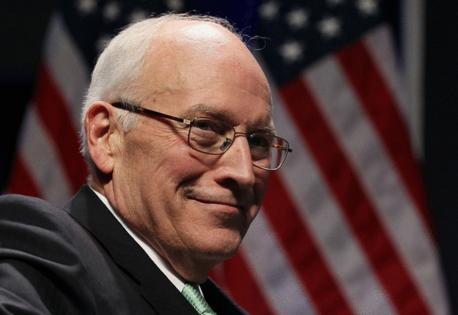Editorial: Dick Cheney left his mark on history
Published in Op Eds
Former Vice President Dick Cheney died on Monday at 84. In a nation whose vice presidents tend to be forgotten by history when they don’t go on to become presidents themselves, Cheney will go down as a history-maker who left his mark on the office.
His “One Percent Doctrine” proved his lasting legacy. It continues to govern the national security policy of the United States. It postulates that preemptive action is imperative to attack any danger that satisfies a 1% threshold of possibility calculated by an intelligence community predisposed to threat inflation, a policy that, after the Sept. 11 attacks, brought the United States to war in Iraq in search of weapons of mass destruction.
The One Percent Doctrine may have been Cheney’s brainchild. But the doctrine continues to inform the global projection of United States military power and a nation on a permanent war footing today: nearly 800 military bases abroad; special forces in hundreds of foreign countries; summoning the military not only to kill alleged drug traffickers in the Caribbean and Pacific but also to fortify domestic law enforcement.
We have become a garrison state sporting an annual $1.5 trillion national security budget. Then-Vice President Cheney quipped to Treasury Secretary Paul O’Neill, “Reagan proved deficits don’t matter.”
But Cheney was much more than the One Percent Doctrine. He spent most of his life in the corridors of power: chief of staff to President Gerald R. Ford, six terms in the United States House of Representatives representing Wyoming and rising to chair of the Republican Policy Committee and House minority whip, secretary of defense under President George H.W. Bush, and twice vice president under President George W. Bush, exerting a supersized influence over national security.
Cheney is widely regarded by scholars and historians as one of, if not the most, powerful and influential vice presidents in U.S. history. His power stemmed not from constitutional mandates (which are few) but from a unique combination of factors: his own extensive experience in Washington, a president (George W. Bush) who delegated significant authority and the central role the vice president’s office assumed in the war on terror after 9/11.
Cheney’s views were not all of a conservative stripe. Supporting his gay daughter, Mary, he advocated for the legalization of same-sex marriage. He opposed U.S. troops marching to Baghdad in the 1991 Gulf War. In 2024, he voted for Democrat Kamala Harris over Republican Donald Trump in the presidential election. Cheney elaborated: “(Trump) tried to steal the last election using lies and violence to keep himself in power after the voters had rejected him. He can never be trusted with power again. As citizens, we each have a duty to put the country above partisanship to defend our Constitution.”
Cheney was not the only traditional Republican who balked at Trump’s quest for kingship. He stood by his daughter, Republican Congresswoman Liz Cheney, in her star role on the House Select Committee to investigate the January 6 attack on the United States Capitol. The congresswoman was defeated in her reelection bid in 2022.
His influence within the Republican Party may have waned in his later years, but Cheney was remembered after his passing by his colleagues and family as both a dedicated family man and a patriot. His family statement at the time of his death emphasized his role as a loving patriarch, and many political figures, including former President George W. Bush, praised his deep love for the United States.
_____
©2025 The Baltimore Sun. Visit at baltimoresun.com. Distributed by Tribune Content Agency, LLC.
























































Comments